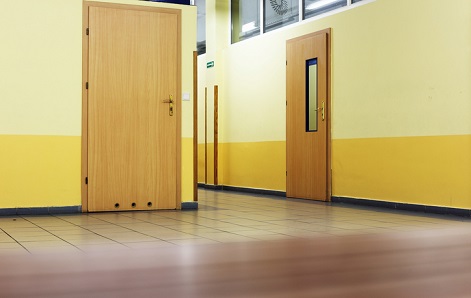
In just eight years, humanities teacher Yasodai Selvakumaran has influenced the careers of more than 200 teachers, and in many ways, she’s only just getting started.
In 2017, Selvakumaran, who teaches at Rooty Hill High School (named as an In, was recognised as one of 30 Rising Stars under the age of 35 in Australian education by The Educator Australia magazine.
Three years earlier, she won the Australian Council of Educational Leadership Mary Armstrong Award for Outstanding Young Educational Leader, and the Australian Teaching Fellowship for 2018.
Speaking to NSW Department Secretary, Mark Scott, in the new Every Student Podcast Selvakumaran gave credit to her principal, Christine Cawsey, who she lauded for encouraging her as a leader.
“I think what makes Chris unique is that when people start there as a new teacher there is a sense that you can contribute as a leader from the very moment that you walk in,” she said.
“In that first year we are mentored really closely and then, from the second year onwards, every teacher is encouraged to take on a leadership role in a cross-faculty team or an extracurricular role ... there is this idea that it is expertise, not experience.”
At a school where more than half the students come from culturally and linguistically diverse backgrounds, Selvakumaran said inclusive teaching was vital.
“As a school community we are constantly telling our students it’s not where they come from, it’s where they are going to go. When something is too hard it is our job to see where those barriers are and how we can break them down,” she said.
Selvakumaran’s current innovative focus is expanding what students and staff understand by the term “creativity”.
“Students associate creativity with something to do with the creative arts and they think if they aren’t good at those then they aren’t creative,” she said.
“But creative traits are also about tolerating uncertainty and about having adaptable thinking.”
Selvakumaran and a colleague have developed this work on creativity in learning into the school’s Creative Inquiry Cycle, with the project trialled across 500 students studying history and geography.
“The Creative Inquiry Cycle helps teachers to design programs which allow students to develop their creative and critical thinking,” she said.
She cited a Year 10 project to design a ‘super park’ that catered to the needs of the local community. Survey data revealed that students’ perception of their own creativity grew by more than 40% by the end of the unit.
“In particular, students recognised that they had developed the dispositions of persistence and inquisitiveness – being able to challenge assumptions, being able to wonder and question,” she said.
The original version of this article, which appears on the NSW Education Department’s website, has been republished with permission and edited for length.


